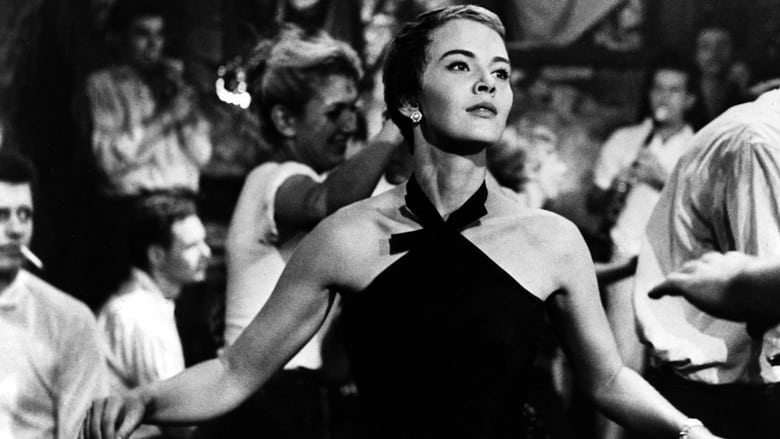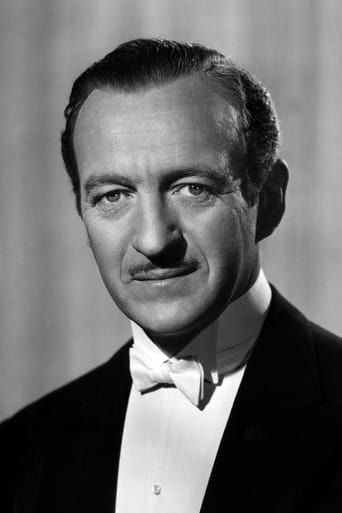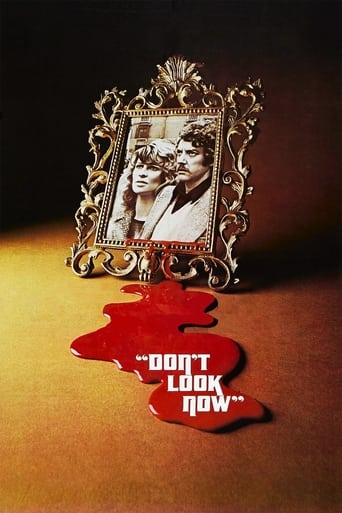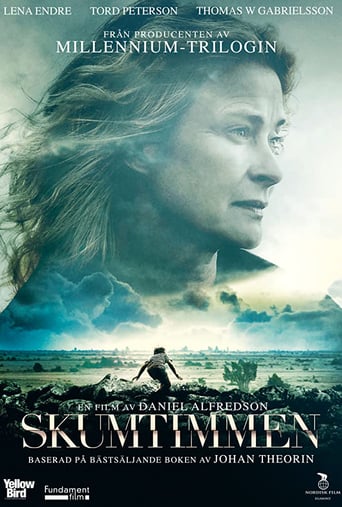Bonjour Tristesse (1958)
Cecile is a decadent young girl who lives with her rich playboy father, Raymond. When Anne, Raymond's old love interest, comes to Raymond's villa, Cecile is afraid for her way of life.
Watch Trailer
Free Trial Channels
Cast


Similar titles
Reviews
What makes it different from others?
It's fun, it's light, [but] it has a hard time when its tries to get heavy.
if their story seems completely bonkers, almost like a feverish work of fiction, you ain't heard nothing yet.
There is, somehow, an interesting story here, as well as some good acting. There are also some good scenes
The wonderfully fresh and vivacious Jean Seberg here shines in her second film. The previous year she had played Joan of Arc (chosen from 18,000 young girls who auditioned for the role), and here Otto Preminger directs his protégé again to superb effect. The film opens with very dramatic music by Georges Auric. This film is based upon the best-selling first novel by the young Francoise Sagan, which created a scandal then but now is not scandalous at all. What passed for 'decadence' at the time was a life of aimless idling by the rich on the Riviera, some gambling, some boating, some swimming, some affairs, and a great deal of insipid self-indulgence. This we see epitomised in Seberg's father, played to perfection by David Niven, a shallow idler and womanizer who straightens his bow tie self-consciously between seductions in the bushes. He and Jean have a 'father-and-daughter-thing' because her mother died long ago, and they really don't want anybody else in their lives apart from casual partners with whom they can romp, only to throw them away when used, joking about them to each other as they get ready to have an evening out. As the film opens, Niven's girlfriend of the moment is Elsa, a charmingly empty-headed creature played delightfully by Mylene Demongeot, who shows such talent as a restrained comedienne. Juliette Greco makes a full-throated appearance in a club, singing the film's theme song all the way through as the dancing and whirling Jean stares at her glassy-eyed over men's shoulders, lost in haunted visions of regret. In 1958, the teenage girls of Britain all swooned over and identified with Jean Seberg, who seems to have originated the shorn boyish haircut which Mia Farrow later copied. Niven as the amiable cad was pretty much what one would expect. But into this mix comes Miss Straight, in the form of Deborah Kerr, who says to Niven when he gets flirty: 'I don't want to be casual.' That's for sure. When Niven finally decides he wants to marry her, she becomes a Little Hitler in no time, bossing Jean around, stopping everyone having 'fun', and generally making herself odious with her control-freakery. This leads to a campaign to drive her out by Jean and Elsa, who has been unceremoniously dumped. Meanwhile, Kerr has fallen hard, and in a revealing shot in the harsh sun we even discover that her true complexion was rather gingery and freckly, something concealed in her other films. Tragedy is not long in coming, hence the 'tristesse'. This is a social document of the 1950s which people interested in knowing what things were once like should watch. The film is directed by a master, Preminger, and Jean Seberg 'makes it' entirely. She is so refreshing, natural, young, real. Poor Jean Seberg. By the age of 40 she was dead. But she left much to remember her by: no one who has seen 'Breathless' (1960) can ever forget her. This film too keeps her wonderful memory alive. Her best acting performance was probably in 'Lilith', but she does well enough here, wholly dominating the screen and acting circles round the old pros. Oh yes, and then there's the inside joke about Eveline Eyfel playing three identical sisters who act as the maid, which is an amusing touch. The Mediterranean sparkles in the sunshine, the pine trees along the beach are exuding their aroma, swim suits dry in minutes: come on in, the water's fine!
Seems I didn't miss all that much - if indeed anything at all - by failing to catch up with this oven-ready turkey until now. As a director Preminger was uneven at best and often relied on controversy - The Moon Is Blue, The Man With The Golden Arm - in lieu of genuine talent; whilst it's true he had at least one Laura in him that was outweighed by one too many Hurry Sundowns. Having 'discovered' Jean Seberg and miscast her monumentally in St. Joan the previous year he attempted to prove his judgment right on the money by using her again in this adaptation of a novel by a seventeen year old French girl, proving only how far off the money he was. This is best described as a Soap with Classical pretensions. Living a quasi incestuous Riviera lifestyle with swinger pop David Niven, Seberg is miffed when Deborah Kerr looms up as prospective wife/stepmom material and plots her downfall. That's all, folks. Students or irony may or may not relish the fact that this movie was released just as the new wavelet was approaching the shore of real Cinema and Seberg, unable to register there, went on to star in Godard's Brainless and help give that new wavelet its brief moment in the sun before Real Talents reclaimed the cinema. Nice one, Otto.
The over-heated plot of "Bonjour tristesse" is taken from a juvenile first novel by Francoise Sagan, which became a best-seller, though God knows why. For teenagers wanting to get rid of a potential step-parent it may have a certain appeal. Don't be taken in by the fact that David Niven plays the playboy father and Deborah Kerr the step-mother-in- prospect. Unfortunately, too much rests on the frail shoulders of Jean Seberg. She's beautiful and easily fulfills the image of a spoiled teenager. The problem is that she can strike poses but she can't act. Anyone who saw her as Joan of Arc in Otto Preminger's St. Joan -- Seberg's first film -- knows she was incapable at 19 of carrying a film. This movie, also by Preminger, fulfills the "promise" of the first. It was her second movie; she was now 20. What was Preminger thinking? That Niven and Kerr could compensate for Seberg's lack of acting capacity? Not a chance? Seberg's character is at the center of the story and, pretty though she is, convincing though she may be physically as a 17 year old, she can't meet the emotional demands of the role. I don't know if she ever became a successful actress in her short life because she did not have an impact on my consciousness in her later pictures. But anyone who thinks this film is better than mediocre needs a taste check. In spite of Niven and Kerr, this remains a juvenile story executed in juvenile fashion by a beautiful young girl who badly needed acting lessons.
This is shallow hedonism and/or social commentary wrapped in a tragic tale about a jealous young woman's scheme to drive apart her father and his fiancée. Is it incest or just a view through the eyes of a daughter with an Electra complex? Who cares? All of the characters, except for Anne (Deborah Kerr) are vacuous and vile. Seberg is poor (I agree with the "boys with breasts" comment of an earlier review). The plot plodded. This predictable material was sufficient for about 30 minutes of film that unfortunately was stretched over an hour and a half! If you want to see great gowns and jewels on the Riviera, I recommend "To Catch a Thief" - in which you will get the added bonuses of an entertaining story and likable characters. I like for films to entertain me. I personally don't really care where a film is set. Whatever the time or place, I want a good story - comedy or drama. I also want to see some enjoyable characters. It doesn't hurt if I can relate to them. Poor Deborah Kerr gives a typically good performance, and so does David Niven in a despicable role.The "2" rating is solely for Kerr and Niven, and for the cinematography - the rich color scenes and the murky, foreboding black and white scenes. Unfortunately, all the great cinematography in the world cannot salvage a poor story with un-enjoyable characters. A sow's ear is still a sow's ear. Consequently watching this mess was a serious waste of my time.


















